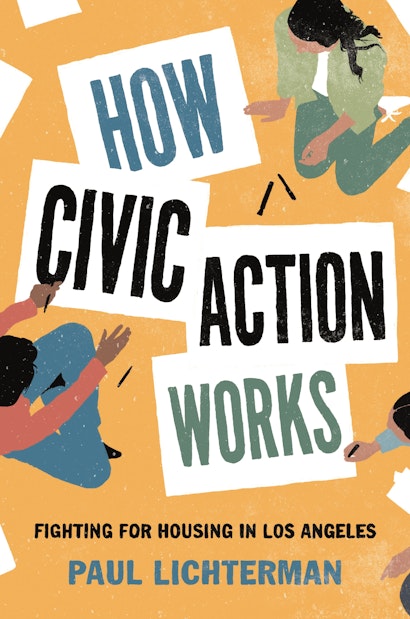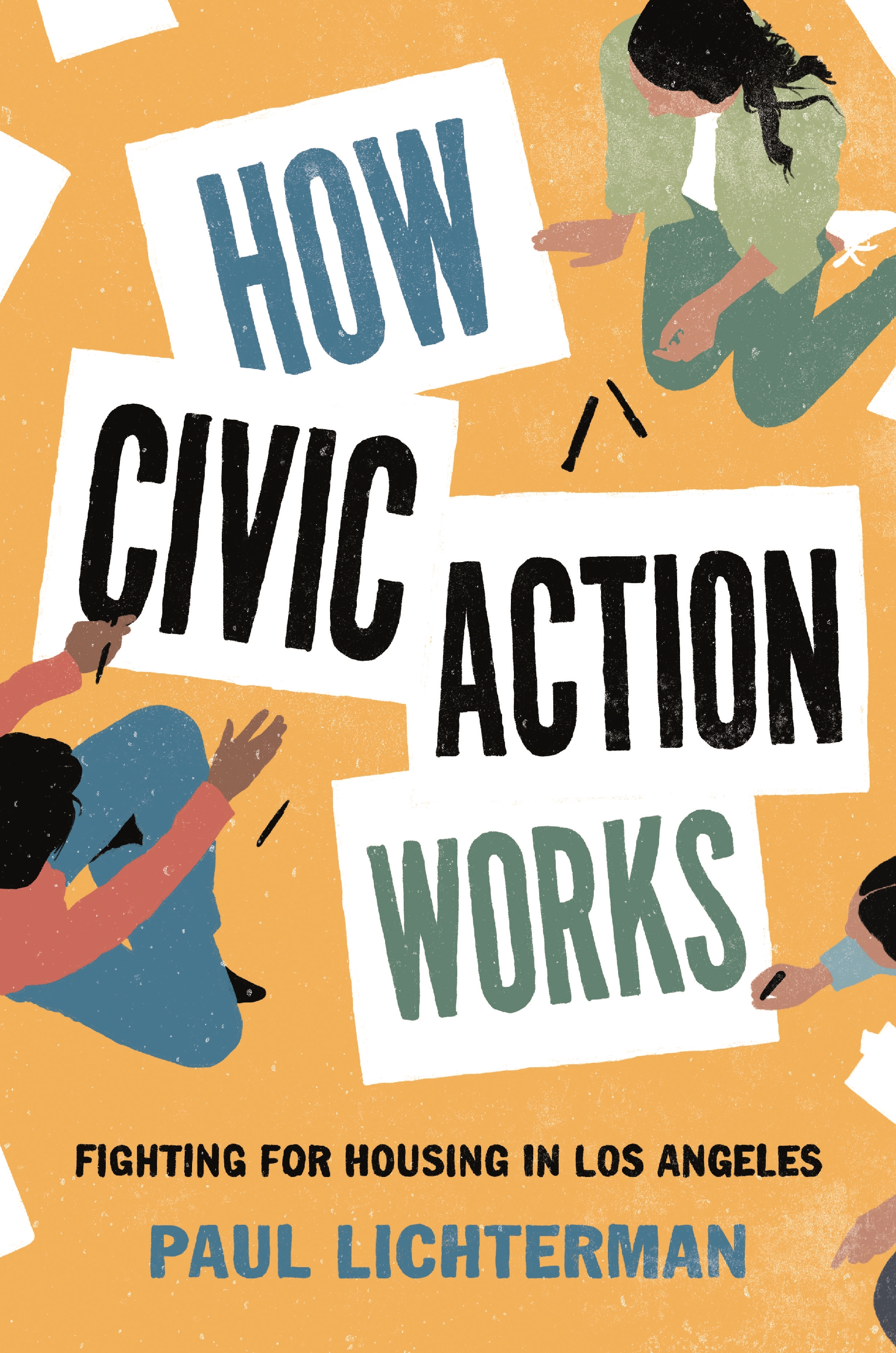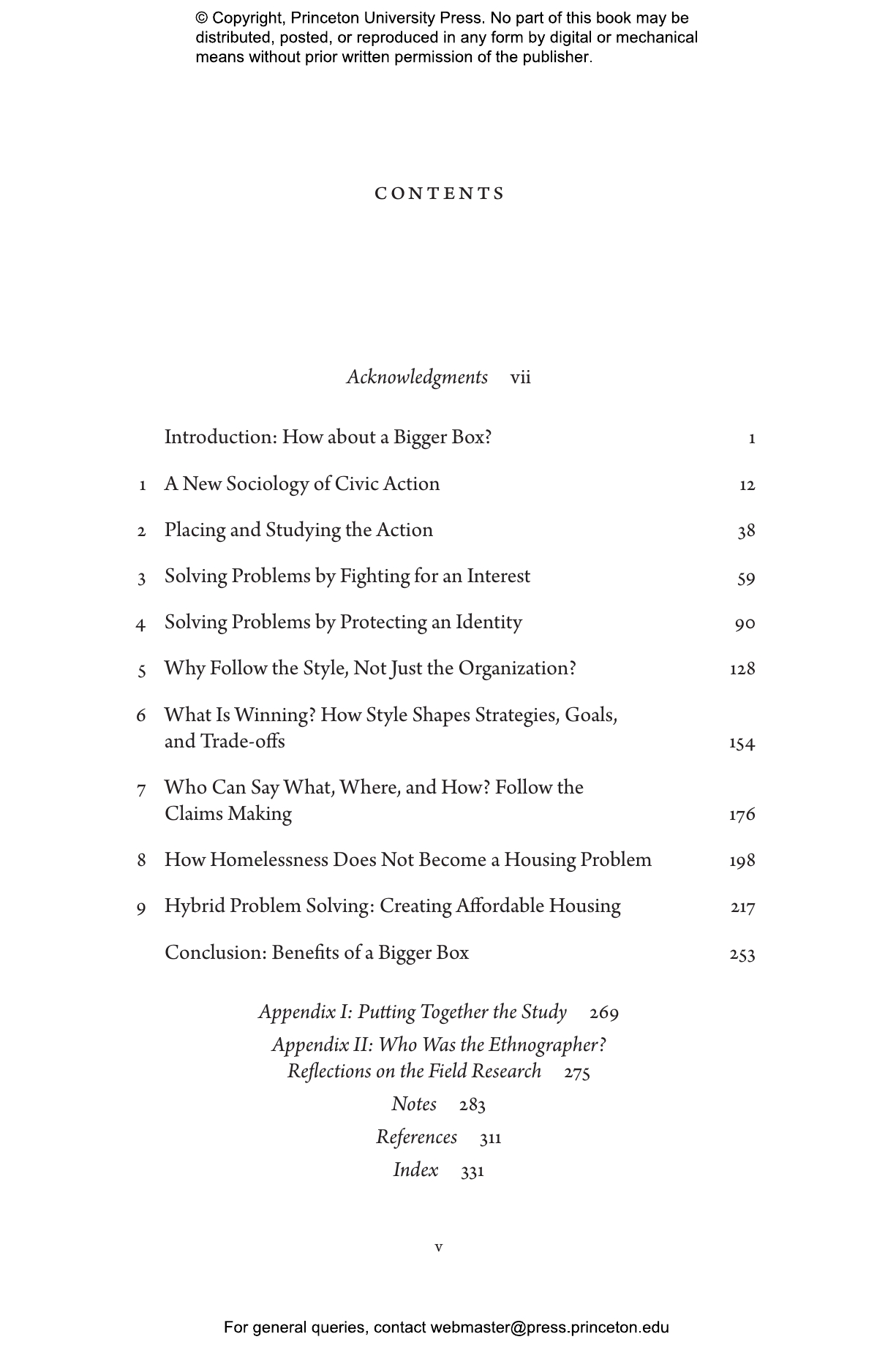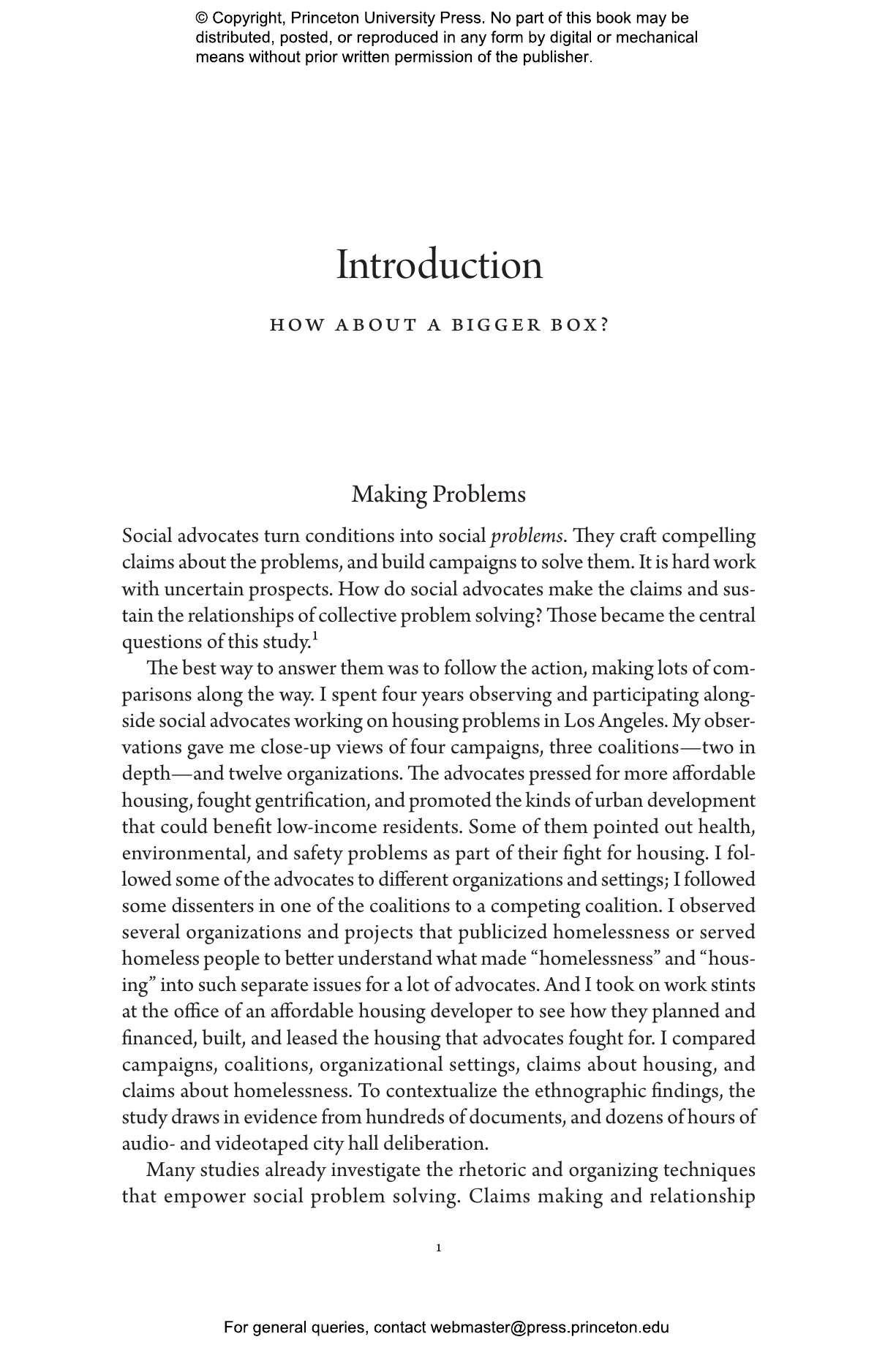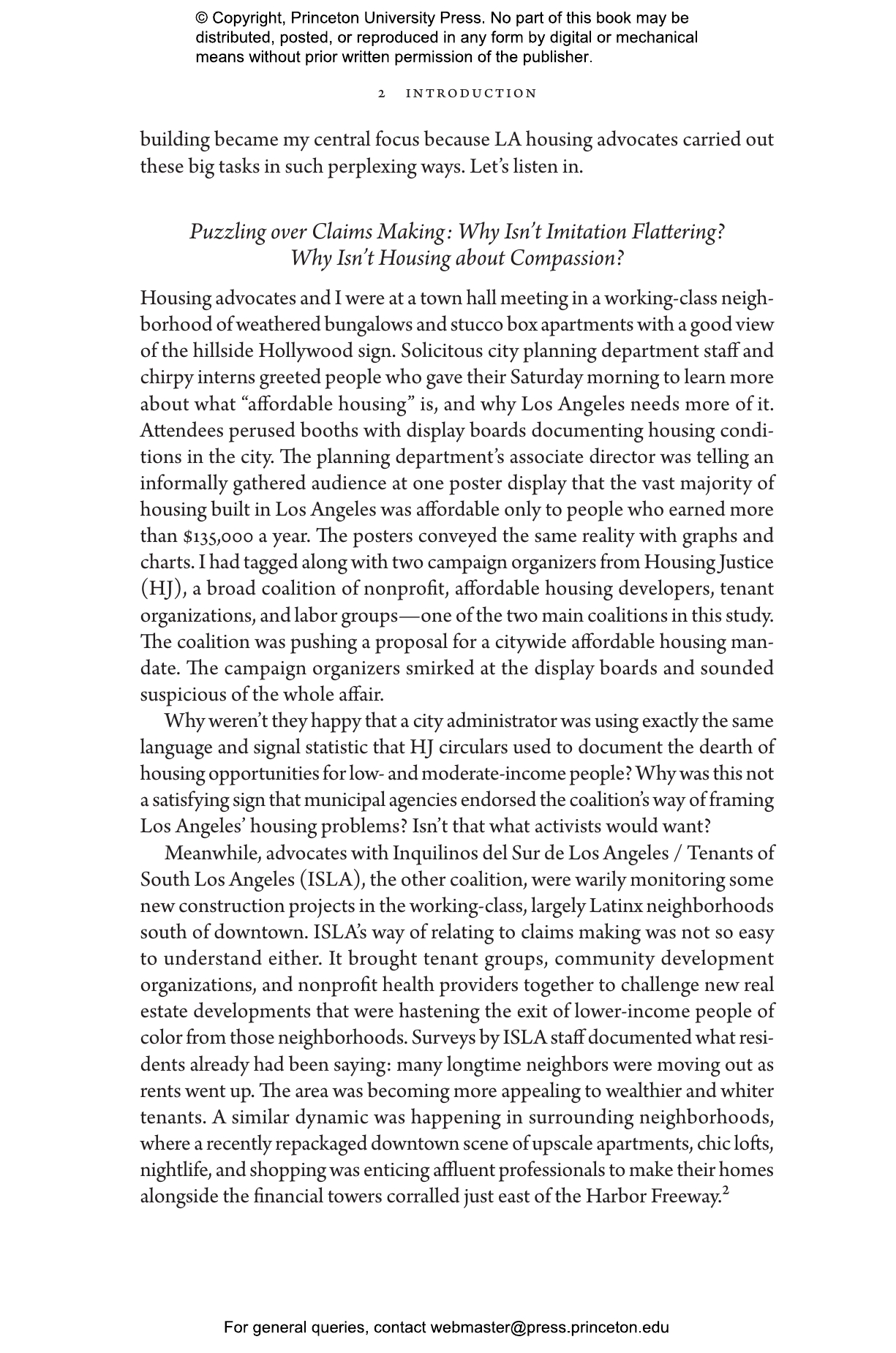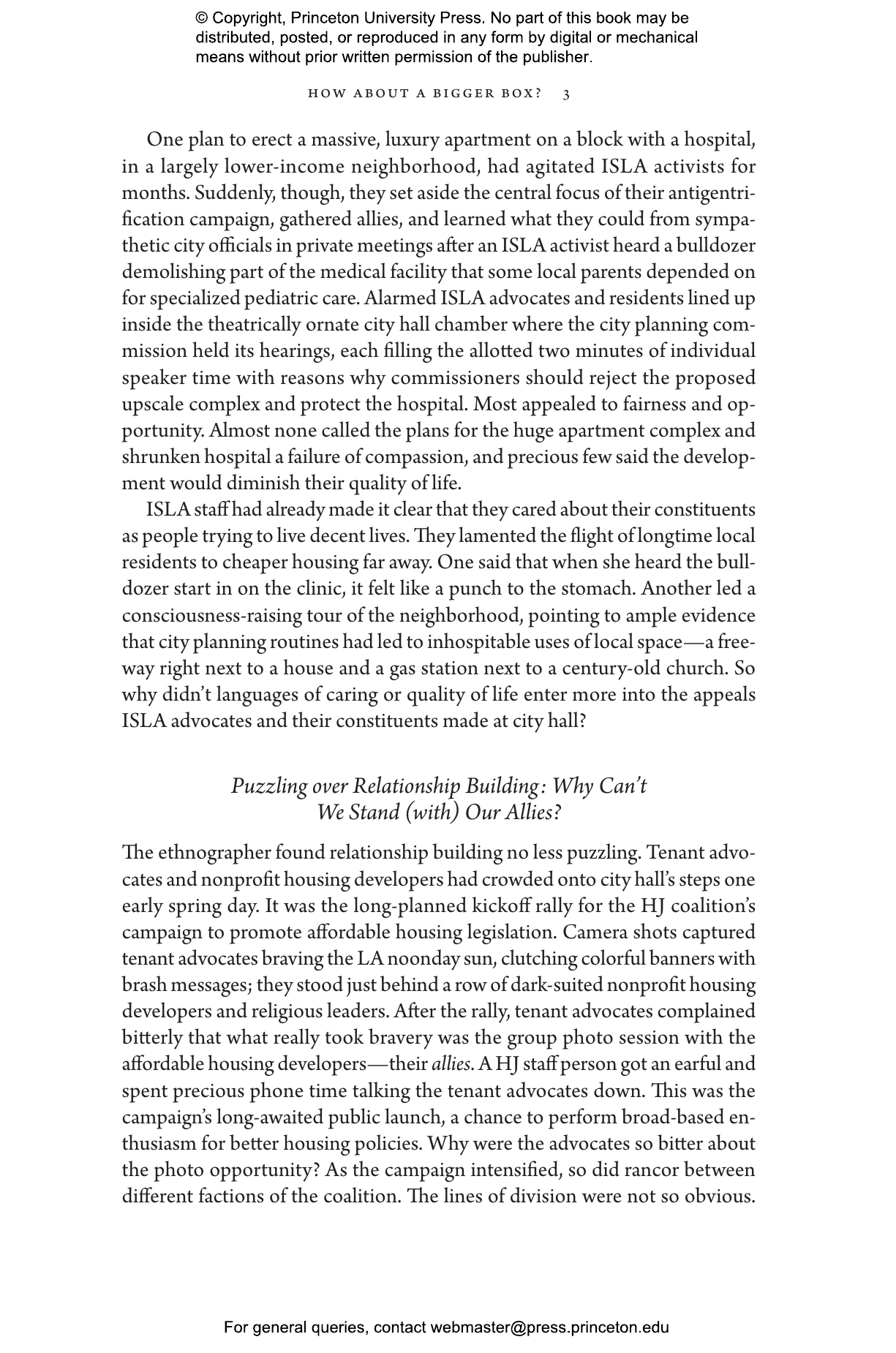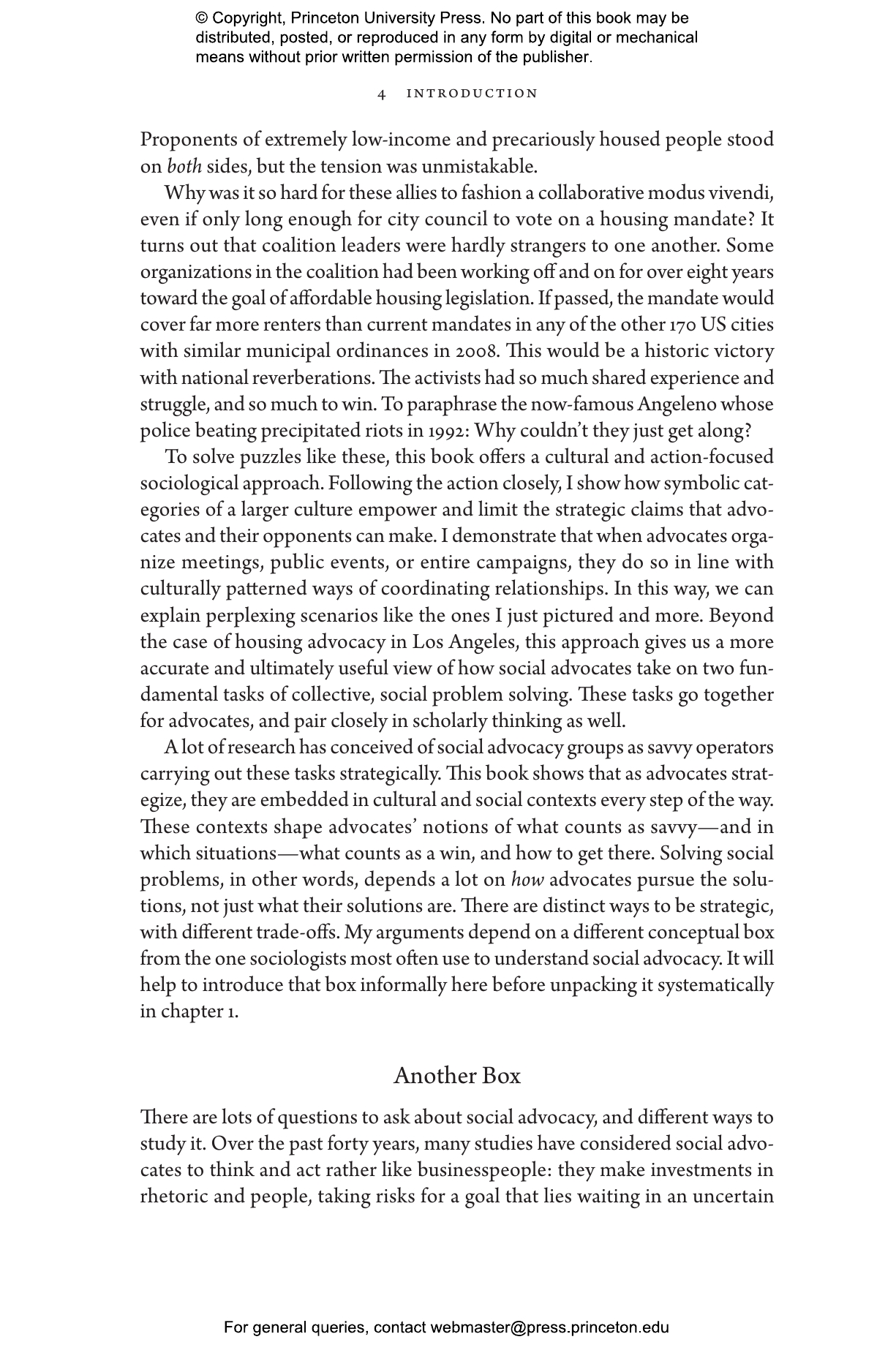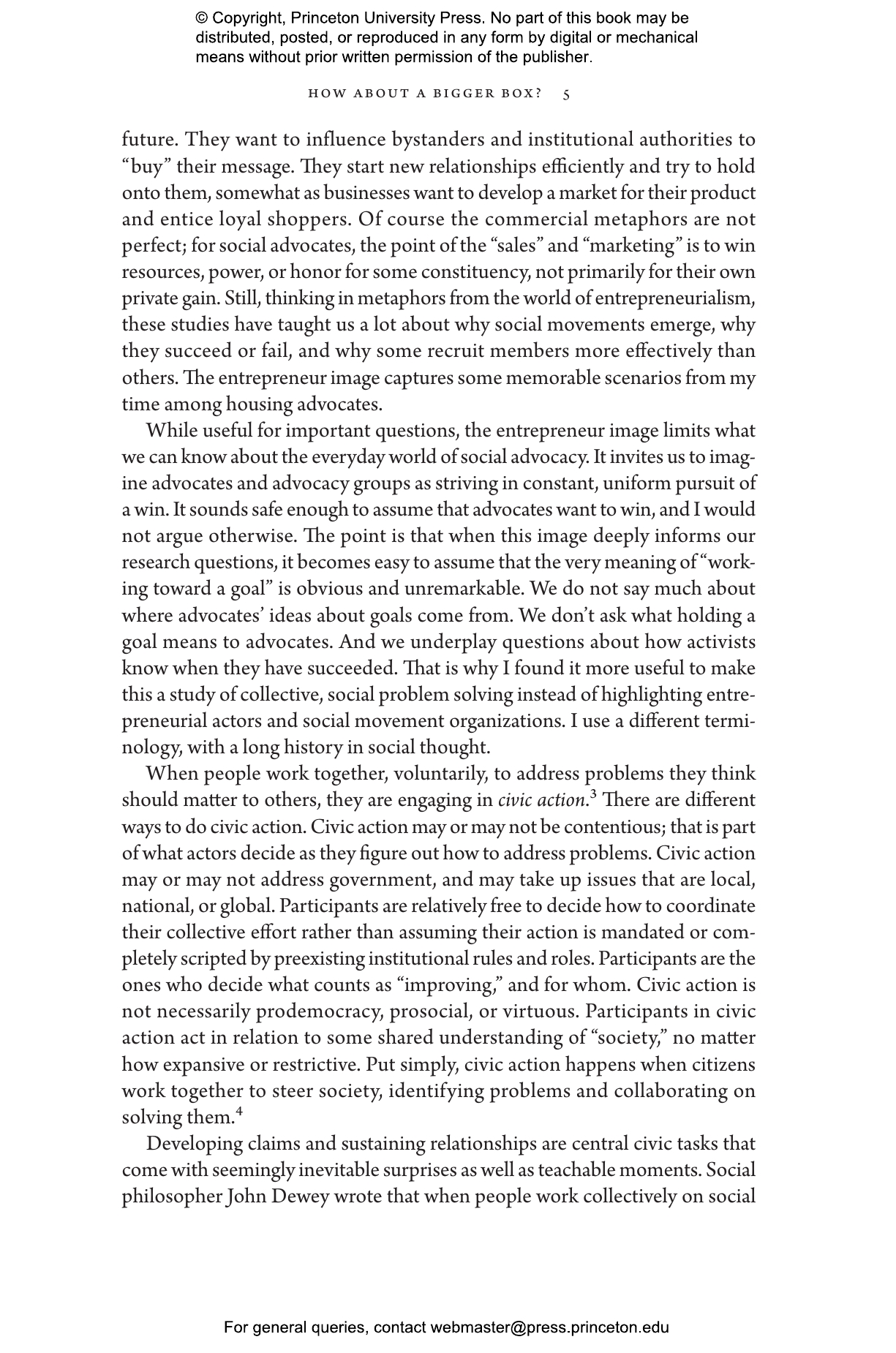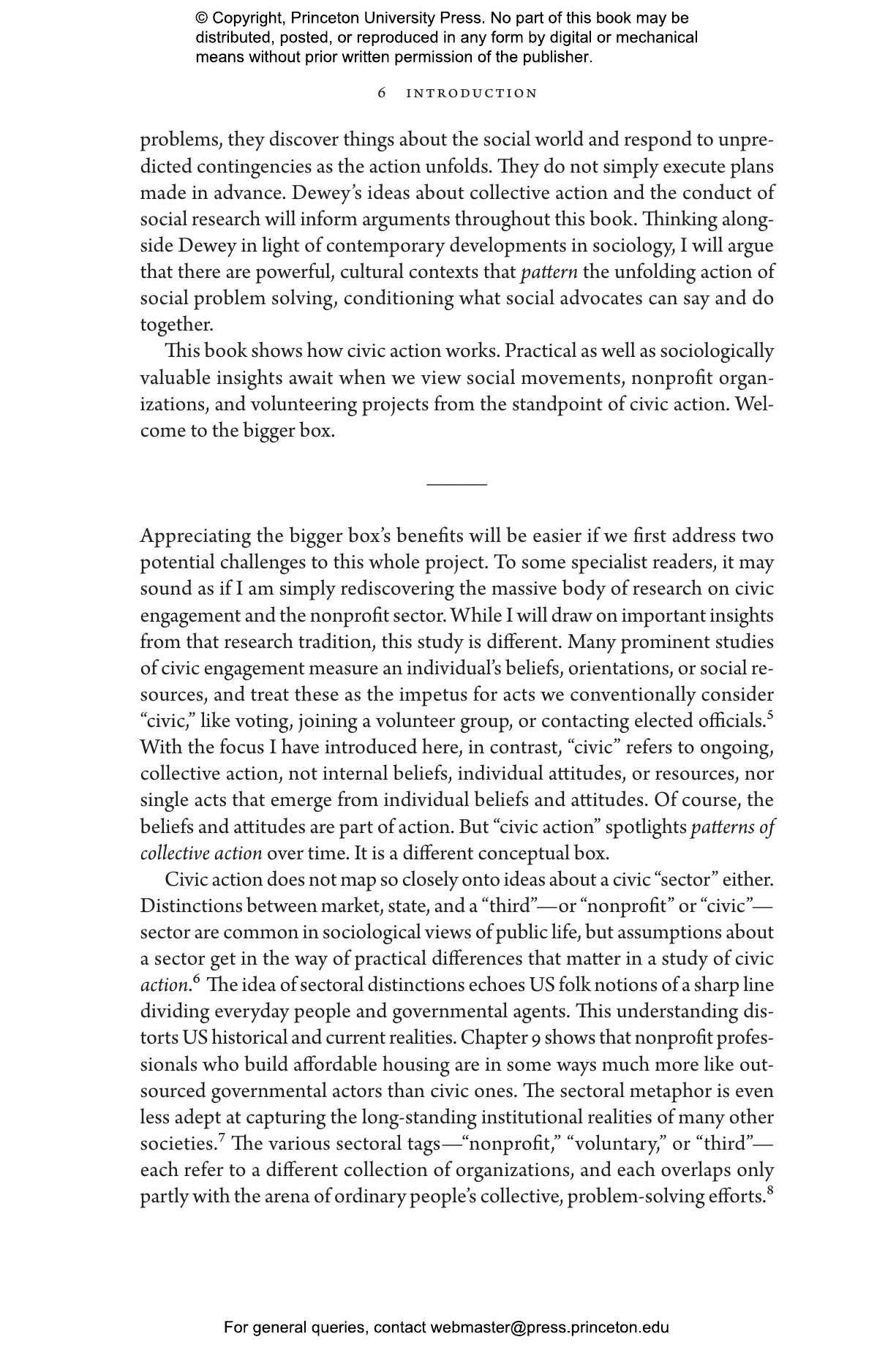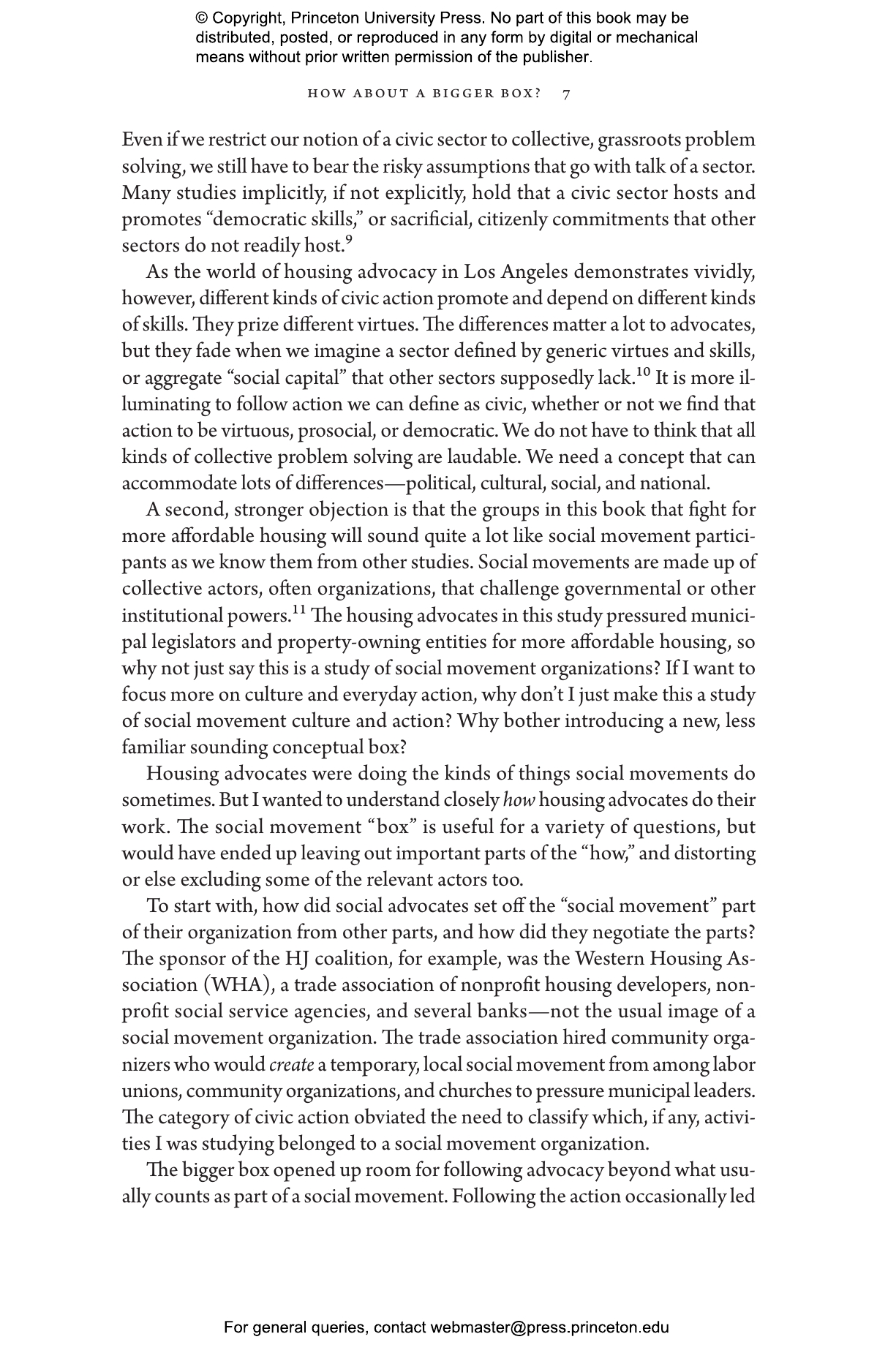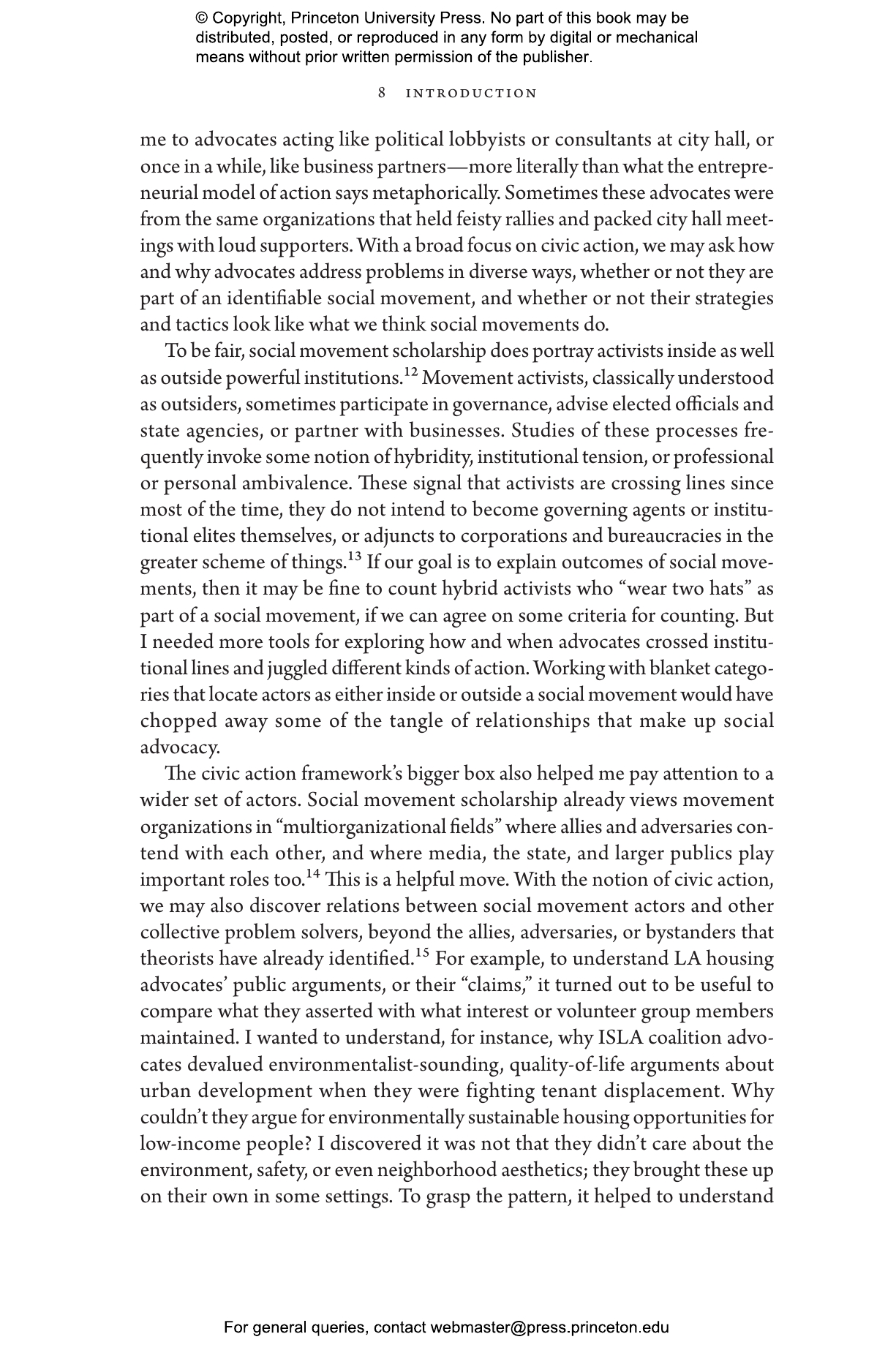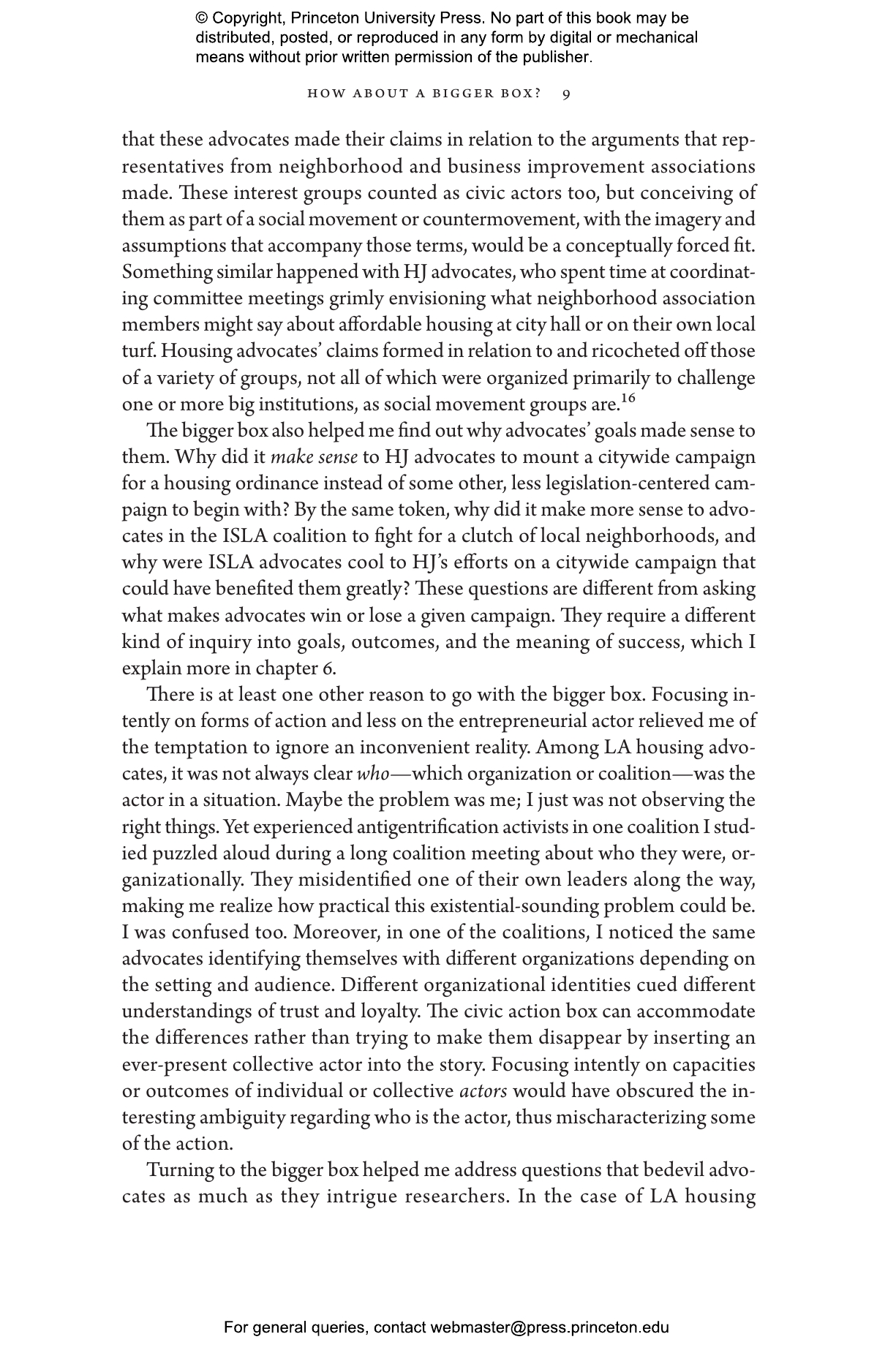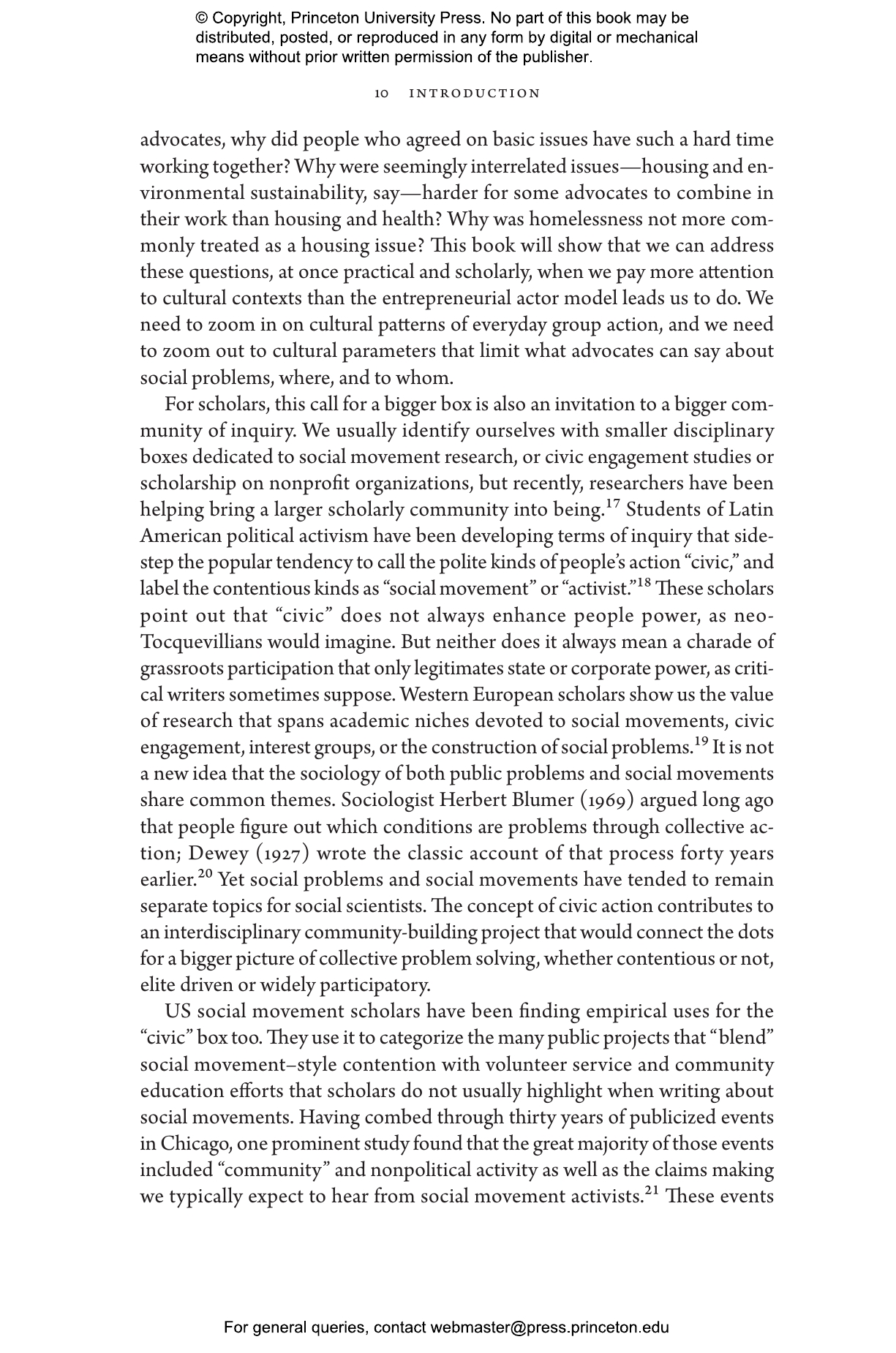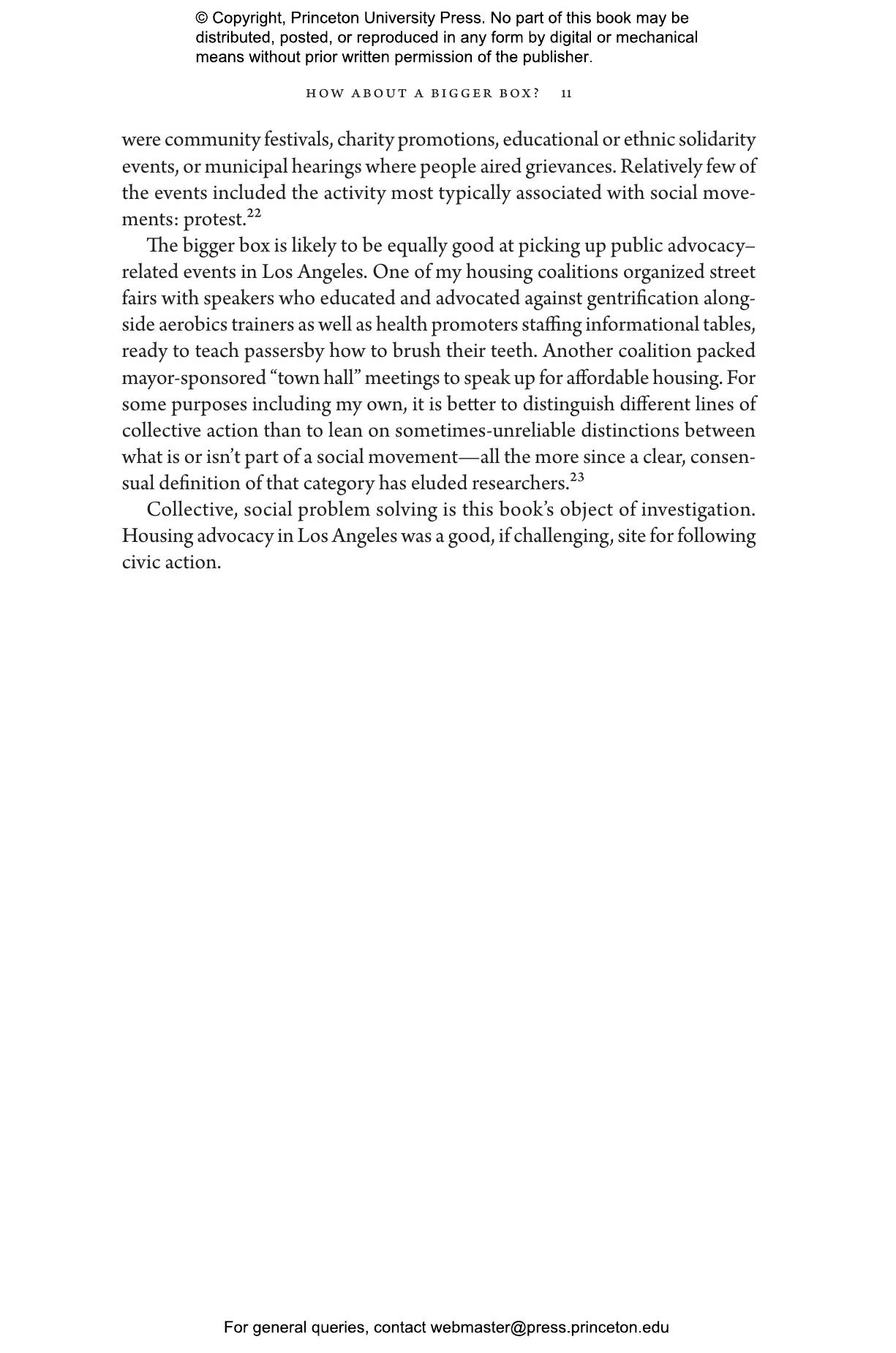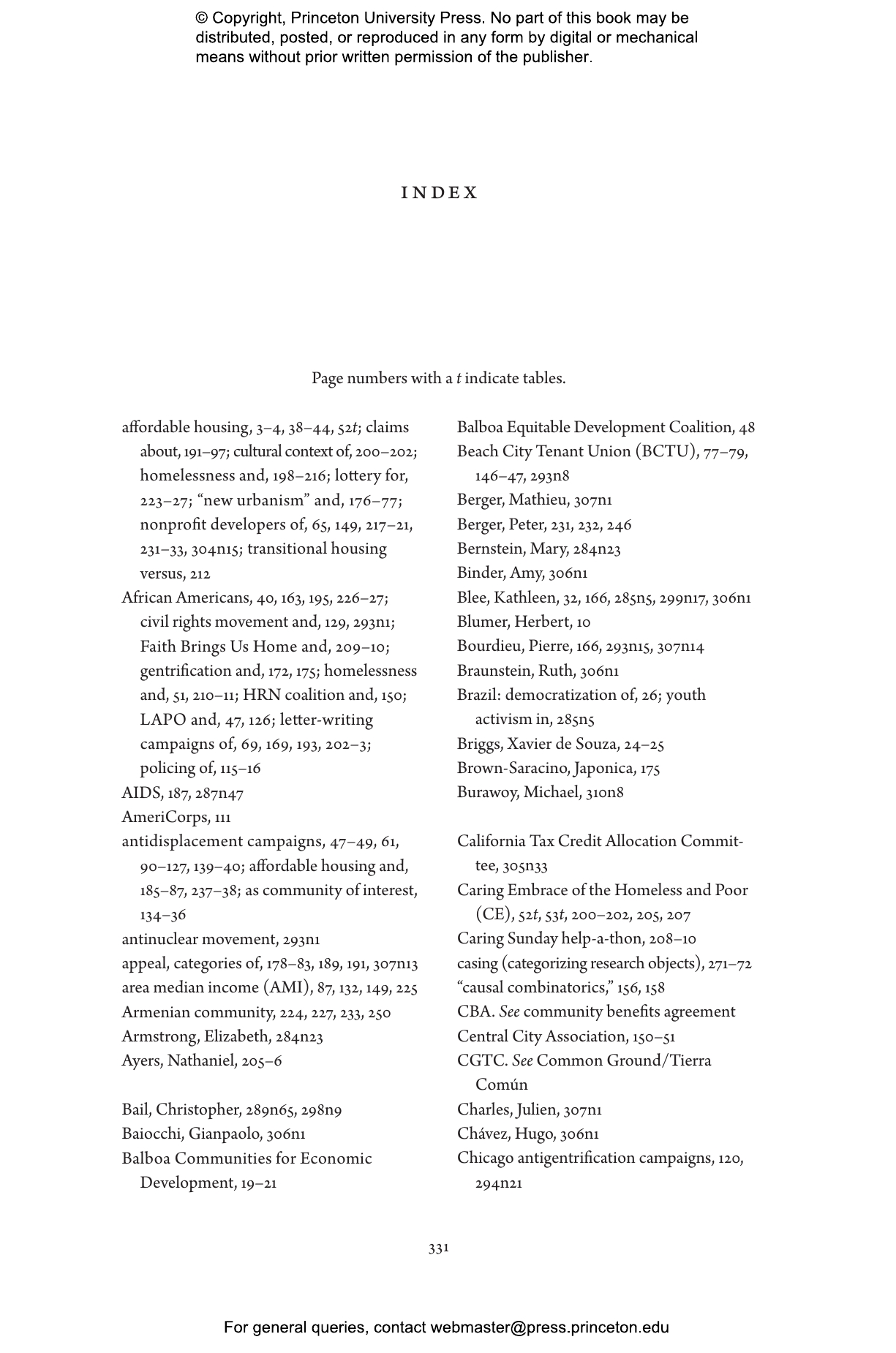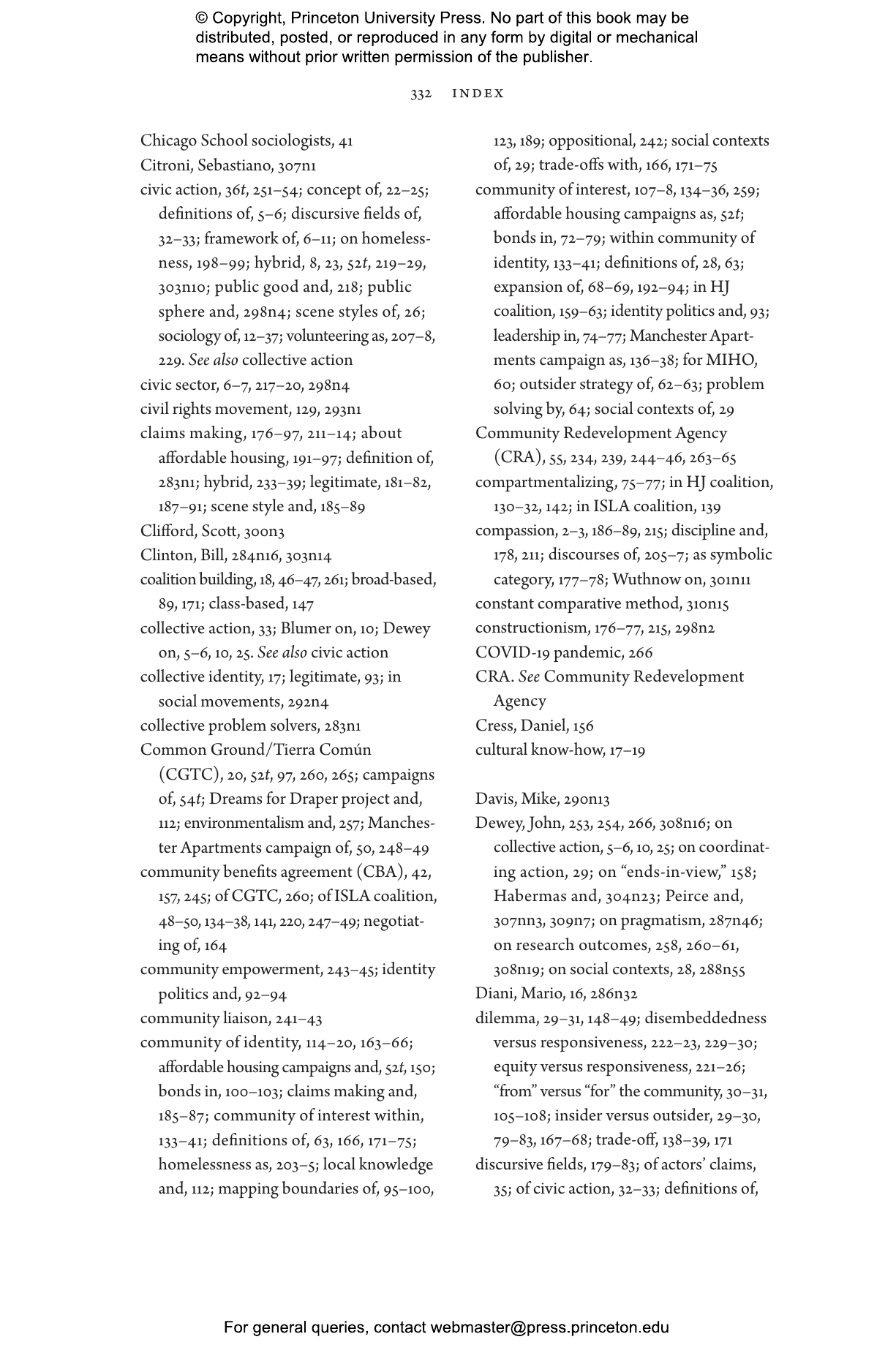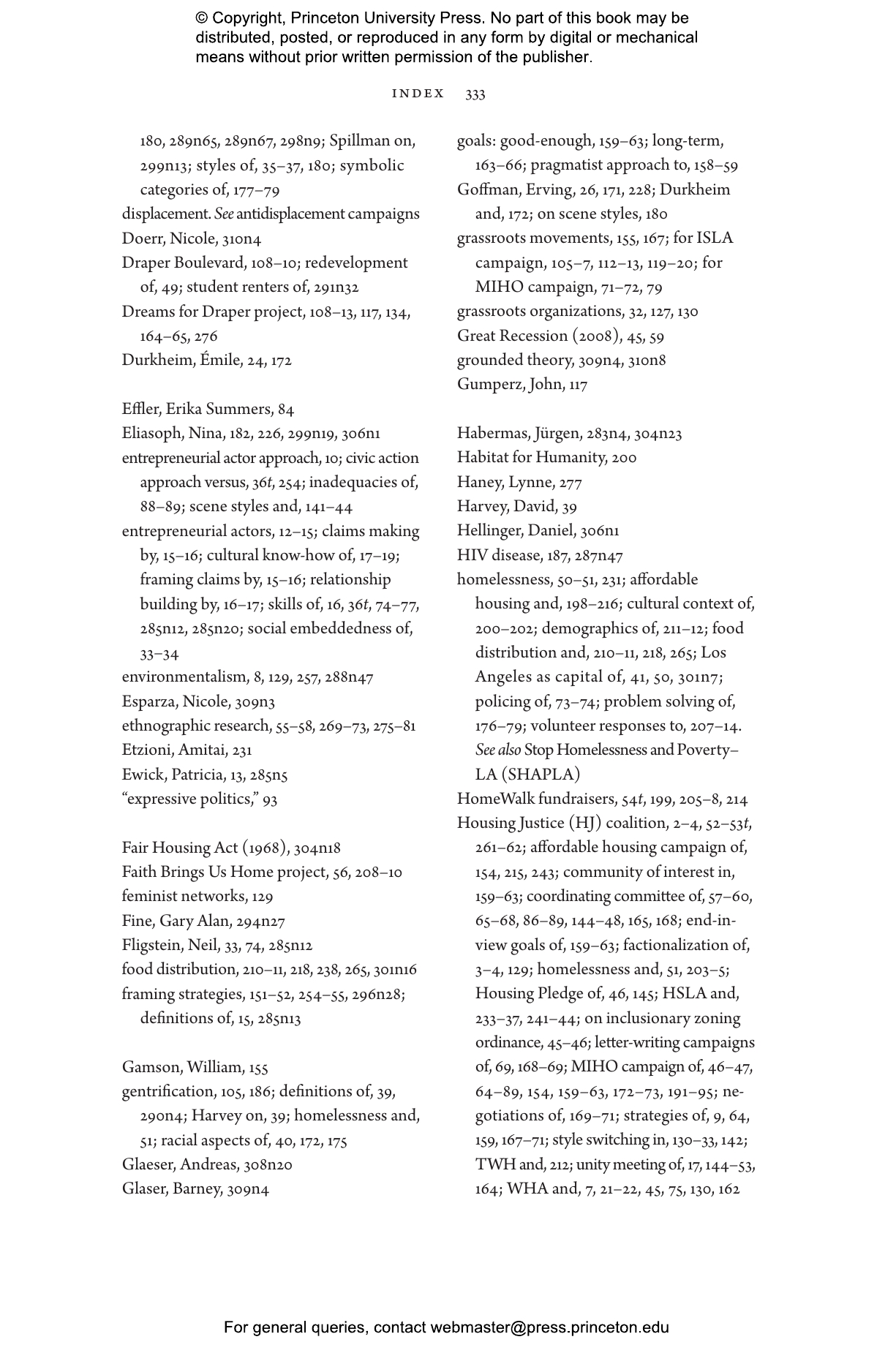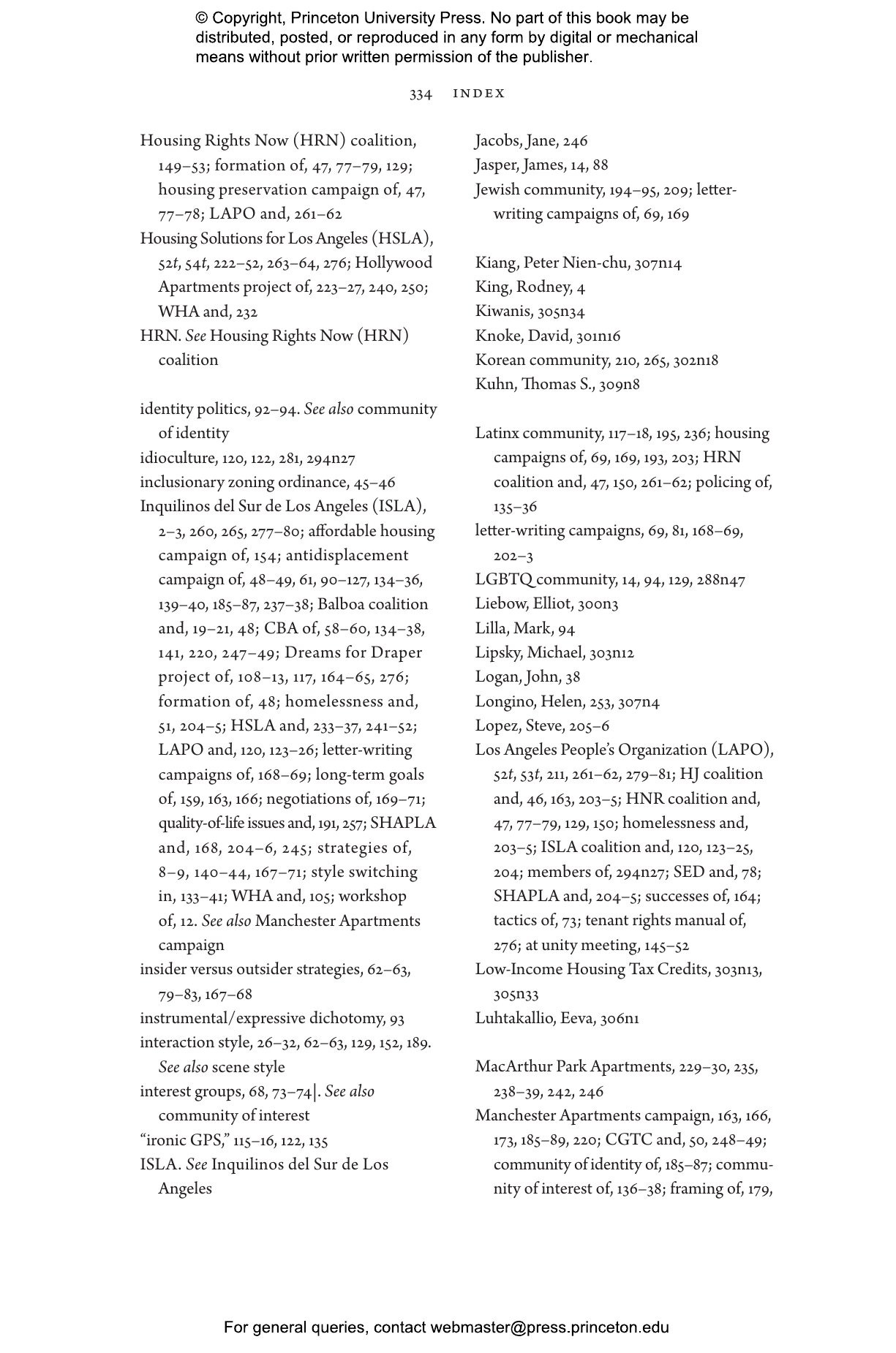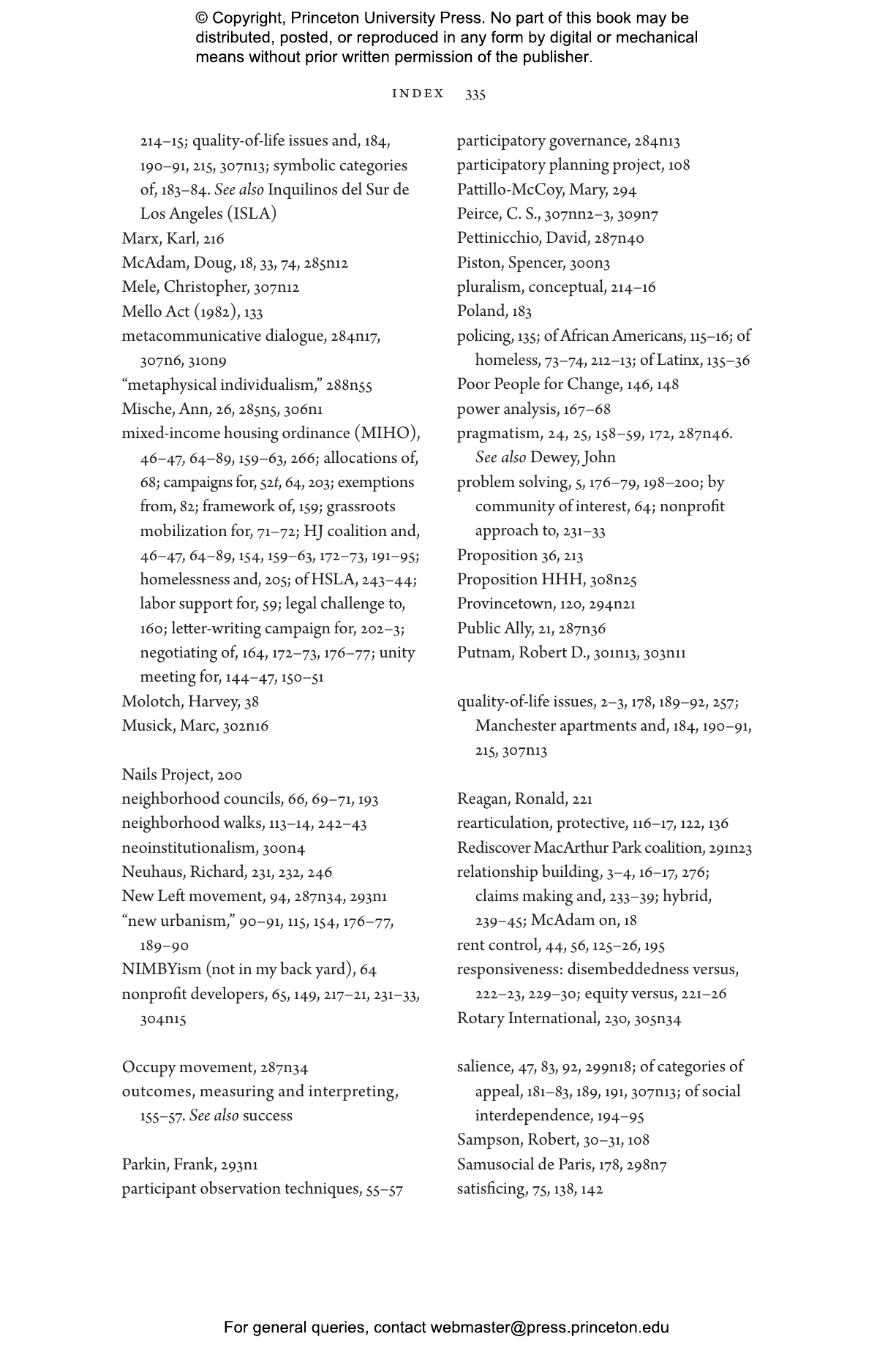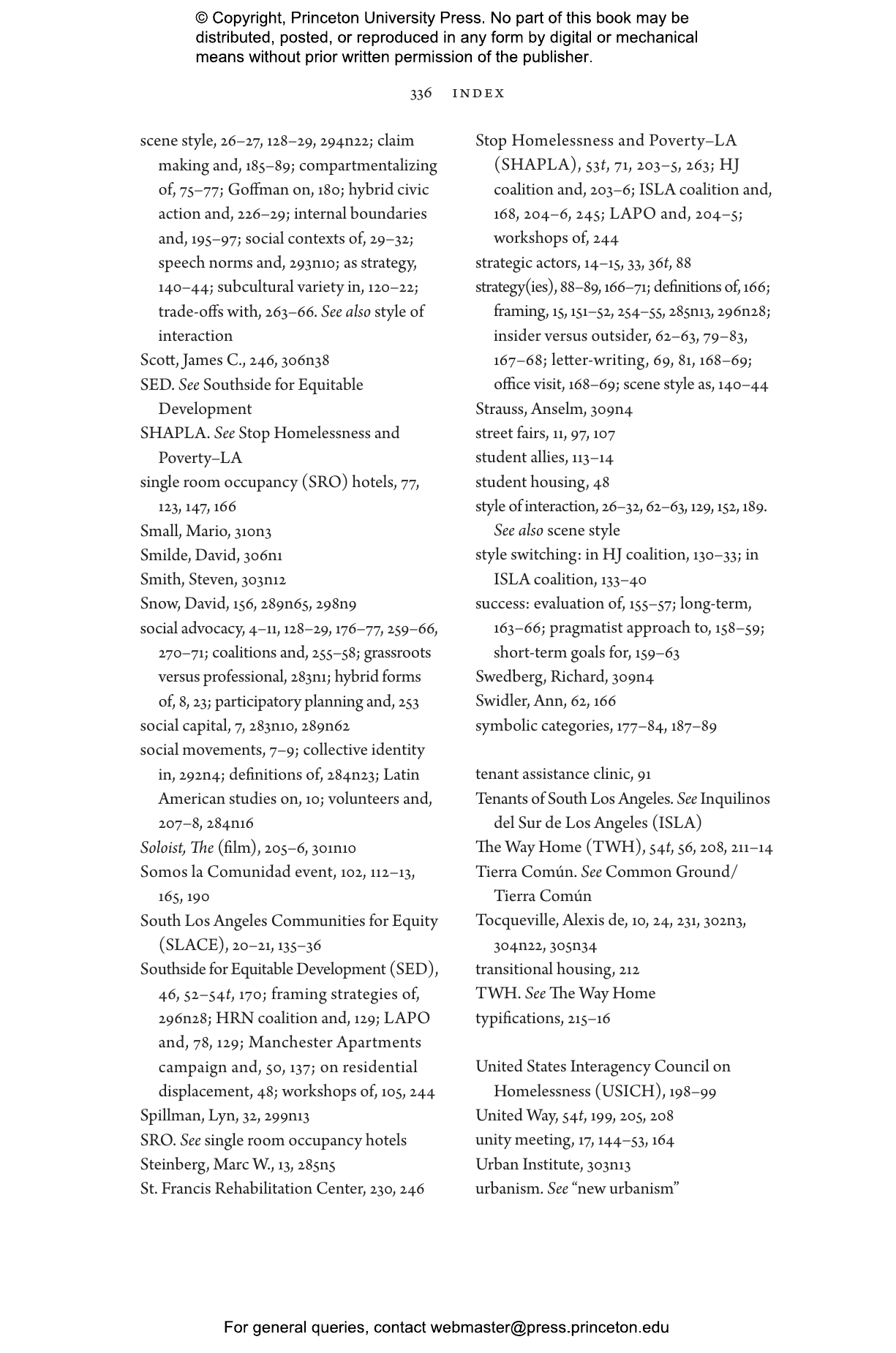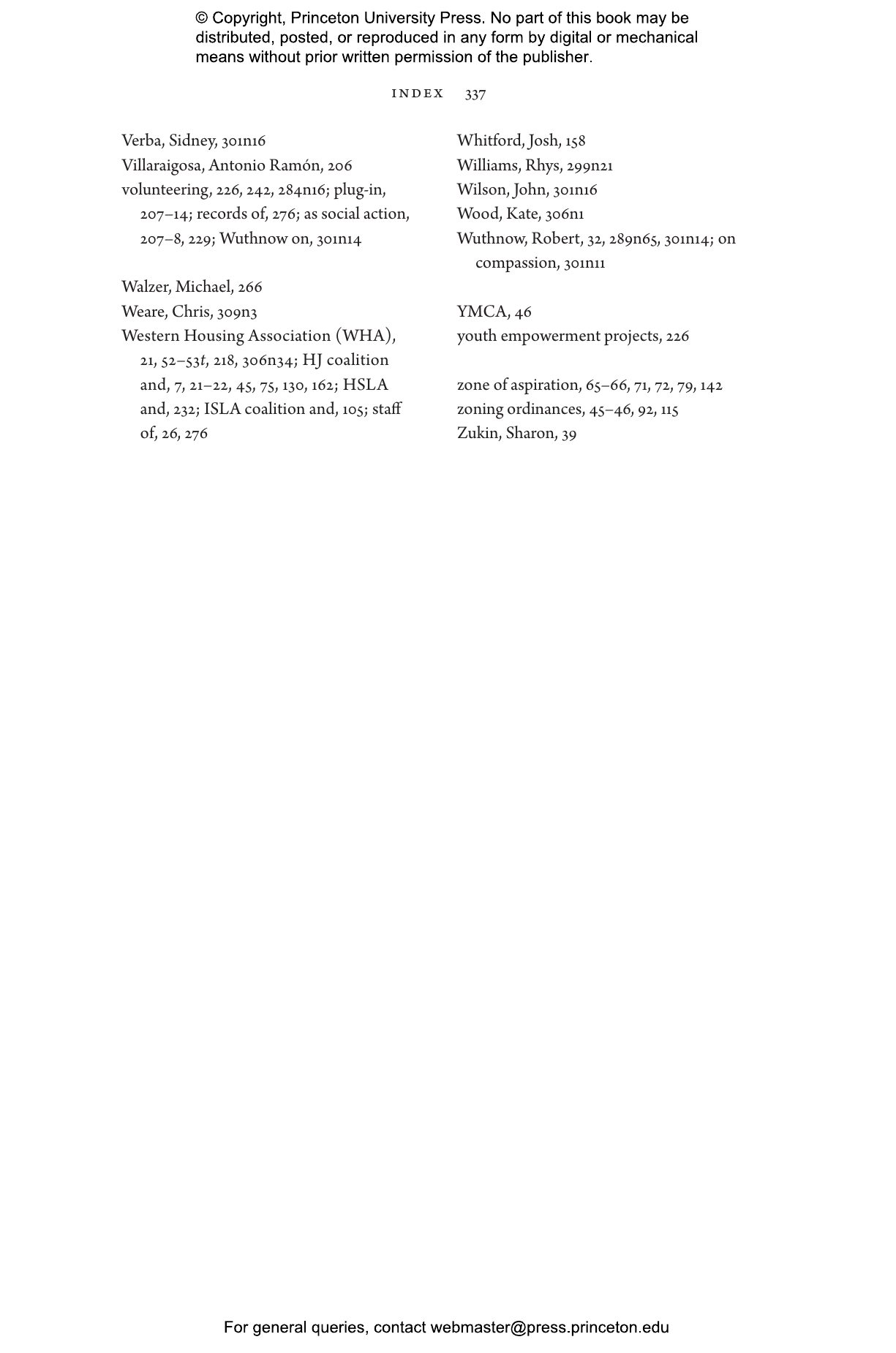How Civic Action Works renews the tradition of inquiry into collective, social problem solving. Paul Lichterman follows grassroots activists, nonprofit organization staff, and community service volunteers in three coalitions and twelve organizations in Los Angeles as they campaign for affordable housing, develop new housing, or address homelessness. Lichterman shows that to understand how social advocates build their campaigns, craft claims, and choose goals, we need to move beyond well-established thinking about what is strategic.
Lichterman presents a pragmatist-inspired sociological framework that illuminates core tasks of social problem solving, both contentious and noncontentious, by grassroots and professional advocates alike. He reveals that advocates’ distinct styles of collective action produce different understandings of what is strategic, and generate different dilemmas for advocates because each style accommodates varying social and institutional pressures. We see, too, how patterns of interaction create a cultural filter that welcomes some claims about housing problems while subordinating or delegitimating others. These cultural patterns help solve conceptual and practical puzzles, such as why coalitions fragment when members agree on many things, and what makes advocacy campaigns separate housing from homelessness or affordability from environmental sustainability. Lichterman concludes by turning this action-centered framework toward improving dialogue between social advocates and researchers.
Using extensive ethnography enriched by archival evidence, How Civic Action Works explains how advocates meet the relational and rhetorical challenges of collective action.
Paul Lichterman is professor of sociology and religion at the University of Southern California. He is author of the award-winning books Elusive Togetherness (Princeton) and The Search for Political Community, and the coeditor of The Civic Life of American Religion.
"An eloquent work of major significance and deep import, written by a scholar working at the height of their craft."—Benjamin Abrams, American Journal of Sociology
"Few topics are as central to sociological theorizing as collective problem solving and few policy problems are as pressing as fair and affordable housing. In addressing these important issues, Paul Lichterman does not disappoint. How Civic Action Works is a masterfully crafted, intensively researched, and impressively argued ethnographic study, deeply grounded in practice theory that forces its readers to reconsider what they thought they knew about claims making and relationship building in social advocacy. I heartily recommend it."—Robert Wuthnow, Princeton University
"In this impressive original study, Paul Lichterman shows how styles of action and discursive fields shape coalitions, and moral and spatial boundaries, in campaigns for affordable housing. By illuminating trade-offs and dilemmas in collective mobilization, this deeply theoretical book will profoundly impact how urban and cultural sociologists think about strategy, social movements, and advocacy. A must-read!"—Michèle Lamont, past president of the American Sociological Association
"Using his exceptional fieldwork skills to take us inside the world of housing advocates in Los Angeles, Paul Lichterman examines the cultural constraints on claims making and relationship building. He makes a major theoretical contribution in developing the concept of civic action to broaden our understanding of social movements, nonprofit organizations, and volunteering."—Suzanne Staggenborg, University of Pittsburgh
"How Civic Action Works is a much-anticipated book from an author who, in the last two decades, has come up with some of the most careful and innovative thinking on social movements. Making complex issues easily digestible, this exquisitely written, well-cooked, and super-solid piece of scholarship will be admired and referred to, and have an instant audience."—David Smilde, Tulane University
